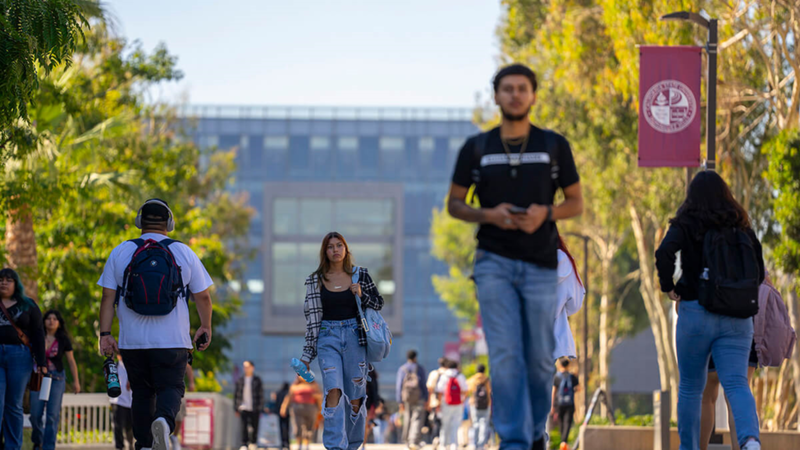Universities Under Fire: The Growing Crisis of Trust in Higher Education
Input
Modified
Universities are experiencing a precipitous decline in public confidence on a global scale. Institutions of higher education, which were once regarded as centers of innovation, knowledge, and societal progress, are currently being scrutinized by the general public, media outlets, and political leaders. The erosion of trust is a pressing concern that jeopardizes the integrity and sustainability of higher education, whether in Australia, where universities are accused of prioritizing commercial interests over education, or in the United States, where ideological concerns dominate the discourse. Concerns regarding political bias, financial mismanagement, declining research integrity, questionable academic practices, affirmative action controversies, and the increasing cost of education have led to this crisis. The public's confidence in universities is eroding, which has prompted discussions regarding how to reestablish their credibility and relevance in society.

Universities have emerged as a focal point for criticism from both main political parties as Australia prepares for a federal election. Peter Dutton, the Opposition Leader, has accused universities of prioritizing "woke" issues that are not in accordance with the commonplace concerns of Australians. Similarly, the Albanese government has initiated a Senate inquiry into university governance, which is focused on high executive salaries and financial malfeasance concerns. Numerous universities have been discovered to consistently underpay their employees, while vice-chancellors and senior executives receive salaries that are disproportionately high. Growing dependence on international student fees raises concerns regarding financial sustainability and the prioritization of profits over education. The University of Tasmania was criticized in a 2024 parliamentary review for prioritizing commercial interests over its primary educational mission. Although political leaders have criticized universities, the current crisis is largely the consequence of long-term governmental policies. Direct public funding for universities has been consistently diminished by successive Australian administrations. Despite the fact that enrollments tripled, government funding (excluding HECS/HELP) decreased from 0.9% of GDP in 1995 to 0.6% in 2021, according to a 2023 Australia Institute report. Universities were compelled to implement business-oriented models, which resulted in a decline in public confidence, job losses, weakened educational standards, and increased commercialization.
Trust in higher education has also declined in the United States. Confidence in universities declined from 57% in 2015 to 36% in 2023, as indicated by a Gallup poll. Political agendas, financial concerns, research integrity, and the diminishing value of a college degree have all contributed to this decline. In 2023, Republican confidence in universities decreased from 56% in 2015 to 20%, as conservatives increasingly perceive academia as dominated by liberal ideologies. Universities are accused of promoting progressive narratives while suppressing conservative perspectives. Republican legislators and media figures have initiated campaigns against higher education institutions, characterizing them as "liberal indoctrination" centers rather than sites of open academic inquiry, as conservative dissatisfaction has increased. In order to mitigate perceived ideological bias, certain states have implemented governance restructuring or defunding of public universities.
The replication crisis, particularly in the social sciences, is another substantial factor that undermines public trust. Many groundbreaking studies in psychology and related disciplines have failed to replicate, which has raised concerns about the validity of the research. The crisis has revealed research misconduct and data manipulation, or p-hacking, thereby eroding trust in academic expertise. Universities' reputations have been further tarnished by their tardiness in addressing these concerns. The transparency and ethical standards of universities have been further undermined by a series of high-profile scandals. In response to plagiarism allegations, Harvard President Claudine Gay resigned, with Harvard's initial efforts to defend her being perceived as an institutional cover-up. The double standard in academic honesty, which dictates that students are subject to severe penalties for plagiarism while administrators are not, has exacerbated skepticism. Similar incidents, such as the Francesca Gino data falsification scandal at Harvard Business School, indicate a trend in which universities prioritize their own interests over academic integrity.
Additionally, university admissions and employment policies have generated controversy. Universities have been attempting to maintain affirmative action through indirect means in response to the Supreme Court's 2023 ruling against race-based admissions. Numerous elite institutions have been accused of favoring racial diversity quotas over Asian and Caucasian applicants. The use of Diversity, Equity, and Inclusion (DEI) statements in faculty hiring has also prompted concerns regarding ideological filtering in academic appointments. In addition to these reservations, the increasing expense and diminishing return on investment of higher education have resulted in a significant number of Americans losing faith in it. Many individuals are questioning whether a degree is worth the financial burden due to the significant increase in college tuition. Many graduates are experiencing difficulty in obtaining high-paying employment due to the unprecedented levels of student loan debt. Employers are progressively reporting that college graduates lack the essential workforce skills, which diminishes the perceived value of a degree.
These issues were further exacerbated by the COVID-19 pandemic, which revealed deficiencies in academic institutions, particularly in the fields of public health and medicine. The public's skepticism regarding academic expertise was precipitated by the conflicting and evolving guidelines that emerged during the pandemic. Later, prolonged school closures and mask mandates were criticized as overreactions, resulting in the silencing of dissenting academics. Public confidence was further eroded by the perception that universities were aligning with political agendas rather than objective science. A Reddit discussion on "The Erosion of Trust in Higher Education" elicited concerns from a variety of users. Some individuals observed inconsistencies in academic integrity policies, in which plagiarism was selectively disregarded. Some individuals questioned the consistency with which academic standards are applied by universities, particularly in high-profile cases. Users also noted that media outlets selectively construct academic issues to align with political agendas, which further polarizes public opinion.
In order to regain public trust, universities must implement tangible reforms that address these systemic issues. In order to restore academic integrity, it is imperative to strengthen peer review processes, enforce more stringent data transparency standards, and hold fraudulent researchers accountable. Rather than prioritizing one political ideology over another, universities must cultivate a culture that embraces a diverse array of viewpoints. Merit and equity should be prioritized in the admissions and hiring processes, with the aim of eliminating race-based policies and assuring transparency. In an effort to render higher education more affordable, it is imperative to implement cost reforms, such as financial accessibility, expanded scholarship opportunities, and reduced tuition fees. The same standards for misconduct must be applied to all individuals, regardless of their status, in order to maintain academic honesty.

The erosion of public confidence in universities is not a partisan matter; it is a pervasive issue that impacts higher education in a variety of national and political contexts. Universities must implement tangible measures to reestablish their credibility, regardless of whether it is the result of ideological bias, commercialization, academic dishonesty, or financial negligence. The erosion of trust will persist if institutions of higher learning do not address these concerns, which will undermine their role in society and threaten the future of academia. Universities must make a commitment to intellectual diversity, accountability, and transparency in order to regain their status as pillars of public welfare and knowledge. By doing so, they can reaffirm their critical role in the development of a society that is informed, innovative, and equitable for future generations.





















